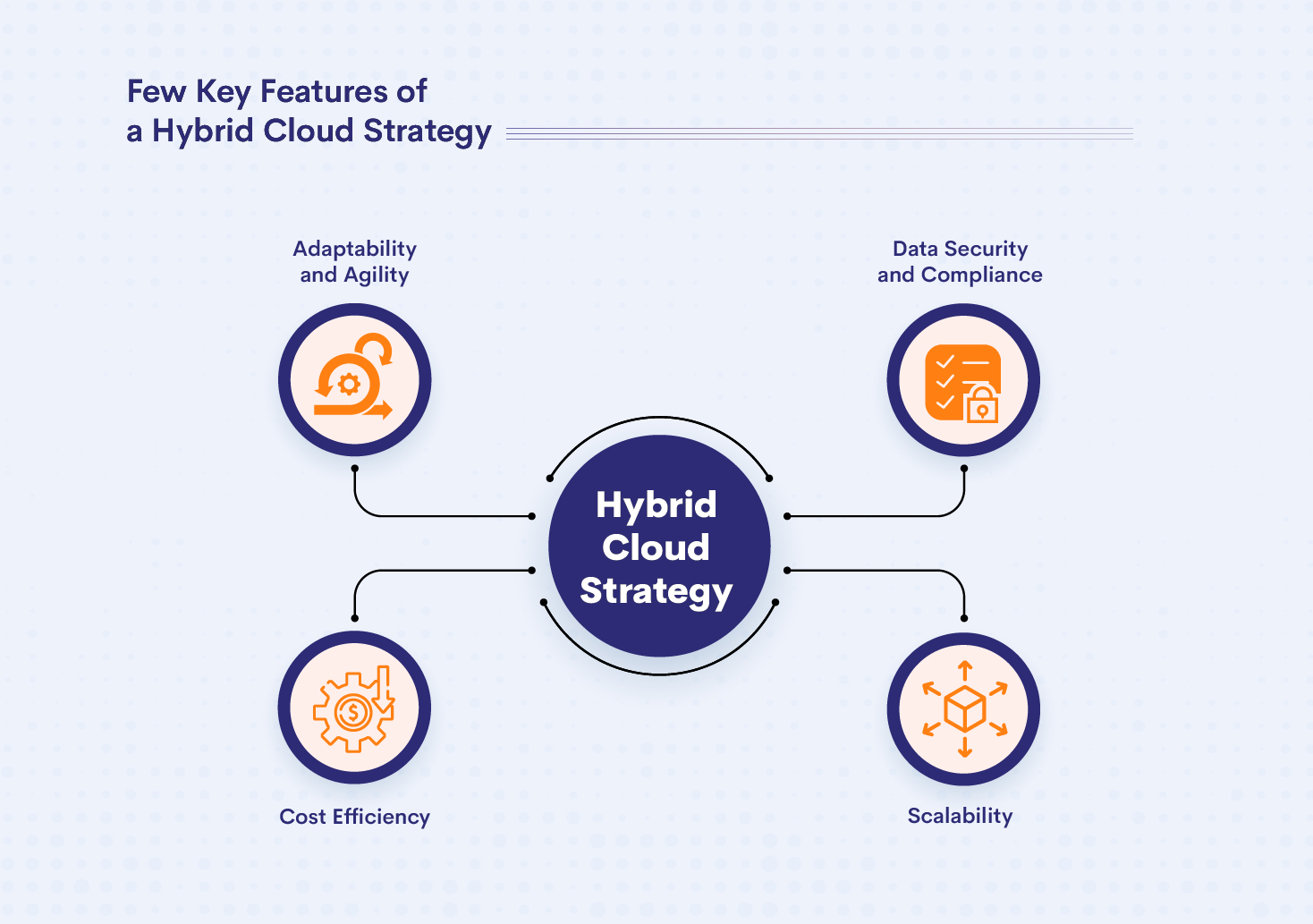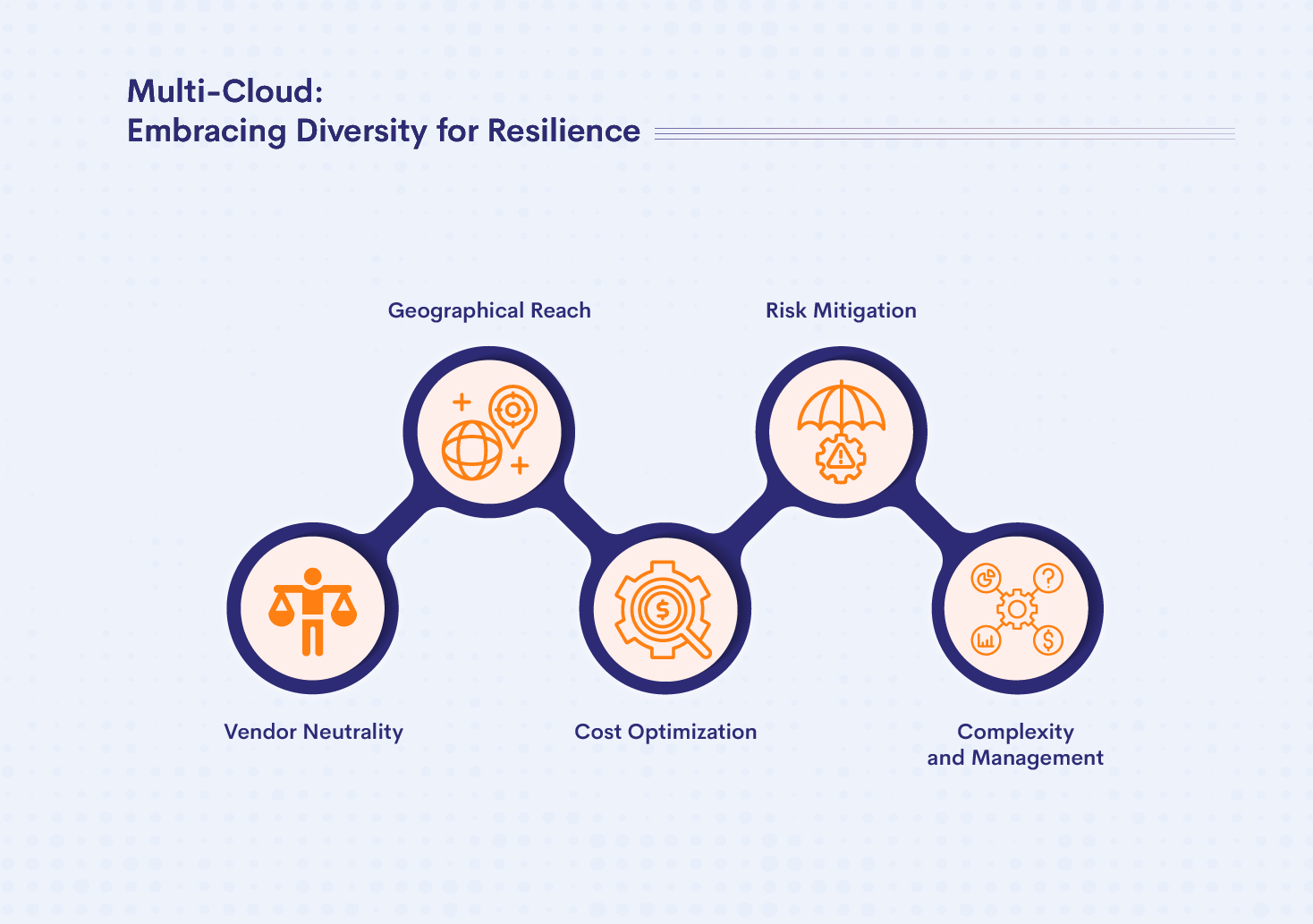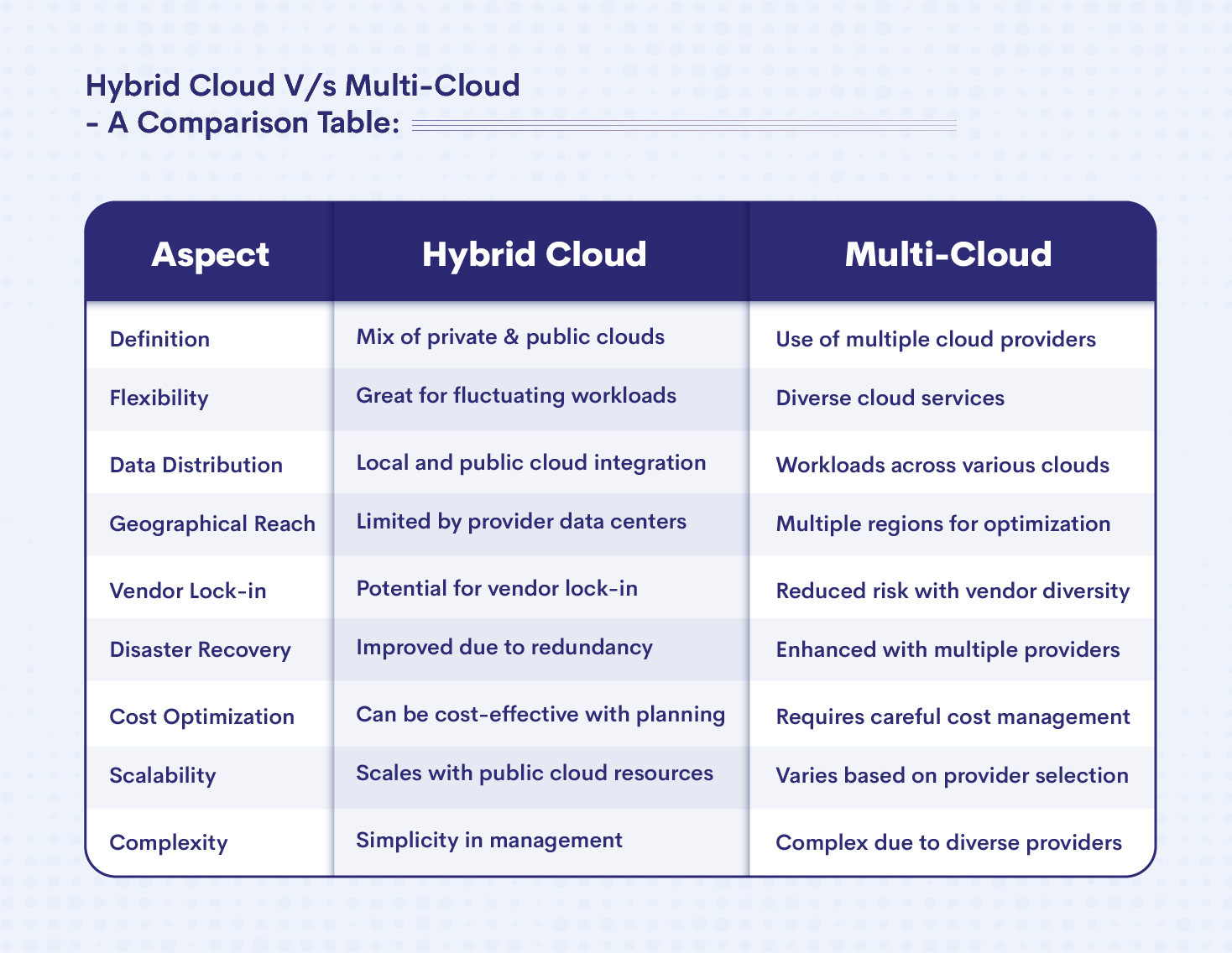- Blog
- October 5, 2023
Hybrid Cloud vs. Multi-Cloud: Which Strategy is Right for Your Migration?

- Blog
- October 5, 2023
Hybrid Cloud vs. Multi-Cloud: Which Strategy is Right for Your Migration?
In today’s rapidly advancing digital landscape, cloud computing is the cornerstone of modern business operations. It provides organizations with the agility to scale, the capacity to innovate, and the competitiveness to thrive in a dynamic environment. However, amidst the multitude of cloud strategies available, choosing the right one tailored to your precise needs can be a formidable challenge. Hybrid Cloud and Multi-Cloud have emerged as two prominent contenders, each offering unique characteristics and advantages that make them suitable for distinct scenarios.
Hybrid Cloud: Finding Balance in Flexibility
A hybrid cloud is a strategic approach to cloud computing that blends the advantages of both public and private clouds. In essence, it enables organizations to have the best of both worlds. This innovative cloud architecture typically comprises a privately managed cloud infrastructure (private cloud) that coexists and interacts with a public cloud service like Amazon Web Services (AWS) or Microsoft Azure.
Here are a few key features of a Hybrid cloud strategy.

- Adaptability and Agility: One of the key strengths of the Hybrid Cloud lies in its adaptability. Tailored for businesses with variable workloads, it offers the flexibility to shift workloads seamlessly between private and public clouds as needed. For instance, during peak demand phases, you can tap into the public cloud’s scalability while ensuring the security and confidentiality of sensitive data and critical applications within the private cloud.
- Data Security and Compliance: The Hybrid Cloud is a popular choice for industries with stringent regulatory requirements, such as healthcare and finance. Sensitive patient records or financial data can reside on the private cloud, which offers enhanced control and compliance capabilities. At the same time, less sensitive operations can leverage the public cloud’s vast resources.
- Cost Efficiency: Cost is a critical consideration for businesses of all sizes. Hybrid Cloud allows you to optimize costs by using public cloud resources only when needed. This pay-as-you-go model helps reduce operational expenses. However, managing two different environments can be complex and requires expertise in both private and public cloud systems.
- Scalability: Scalability is at the core of the Hybrid Cloud. Whether you experience a sudden spike in website traffic or require additional computing power for a specific project, you can easily scale up or down. This ability to adapt quickly is invaluable for businesses with variable workloads.
Multi-Cloud: Embracing Diversity for Resilience
Organizations adopt a multi-cloud strategy to diversify their cloud services. Multi-cloud isn’t just a contingency plan for potential disruptions; it’s a strategic advantage. Instead of depending on a single cloud provider, businesses in a multi-cloud environment distribute their applications, data, and workloads across various cloud platforms. Let us look at some of its key features as follows.

- Vendor Neutrality: Multi-Cloud is all about diversification. It involves using services from multiple cloud providers. This strategy offers vendor neutrality, reducing the risk of vendor lock-in. It also allows you to select the best services from different providers to meet your specific needs.
- Geographical Reach: One of the compelling reasons behind adopting a multi-cloud strategy is the geographical reach it offers. Various cloud providers have established data centers in different regions across the globe. By strategically distributing your workloads among these geographically dispersed data centers, you can significantly enhance the performance and availability of your applications. Furthermore, this geographical diversity inherently bolsters your disaster recovery capabilities, ensuring that your critical data and services remain resilient even in the face of localized disruptions. With multi-cloud, the world becomes your infrastructure, enabling you to serve customers and users with unmatched speed and reliability, regardless of their location.
- Cost Optimization: Competition among cloud providers often leads to cost savings. With Multi-Cloud, you can take advantage of different pricing structures and offerings to optimize your spending. This can be especially beneficial for larger enterprises with complex needs.
- Risk Mitigation: Multi-Cloud minimizes the risk of downtime. If one cloud provider experiences technical difficulties or an outage, your operations can seamlessly switch to another provider, ensuring business continuity.
- Complexity and Management: Managing multiple cloud providers can be complex. It requires robust cloud management tools and expertise. However, the benefits of diversity and resilience often outweigh the management challenges.
Hybrid Cloud V/s Multi-Cloud – A Comparison Table:

Choosing the Right Strategy for You
Ultimately, the choice between Hybrid Cloud and Multi-Cloud depends on your organization’s unique circumstances and goals. In many cases, companies opt for a combination of both strategies, known as Hybrid Multi-Cloud. This approach offers even greater flexibility and risk mitigation.
When deciding which strategy is right for your migration, consider factors such as your current workloads, data security requirements, scalability needs, and budget constraints. Engaging with cloud experts and conducting a comprehensive cloud assessment can provide valuable insights into your specific situation.
Closing Remarks
In the grand scheme of cloud migration, the strategy you choose should seamlessly align with your organizational goals and operational necessities. Whether you opt for Hybrid Cloud, Multi-Cloud, or even a harmonious fusion of both, the keys to triumph remain consistent: meticulous planning and precise execution.
At MSRcosmos, we specialize in crafting customized cloud solutions tailored to your unique requirements. Contact us today to discuss your cloud migration strategy and take the next step toward a more efficient and flexible IT infrastructure.




